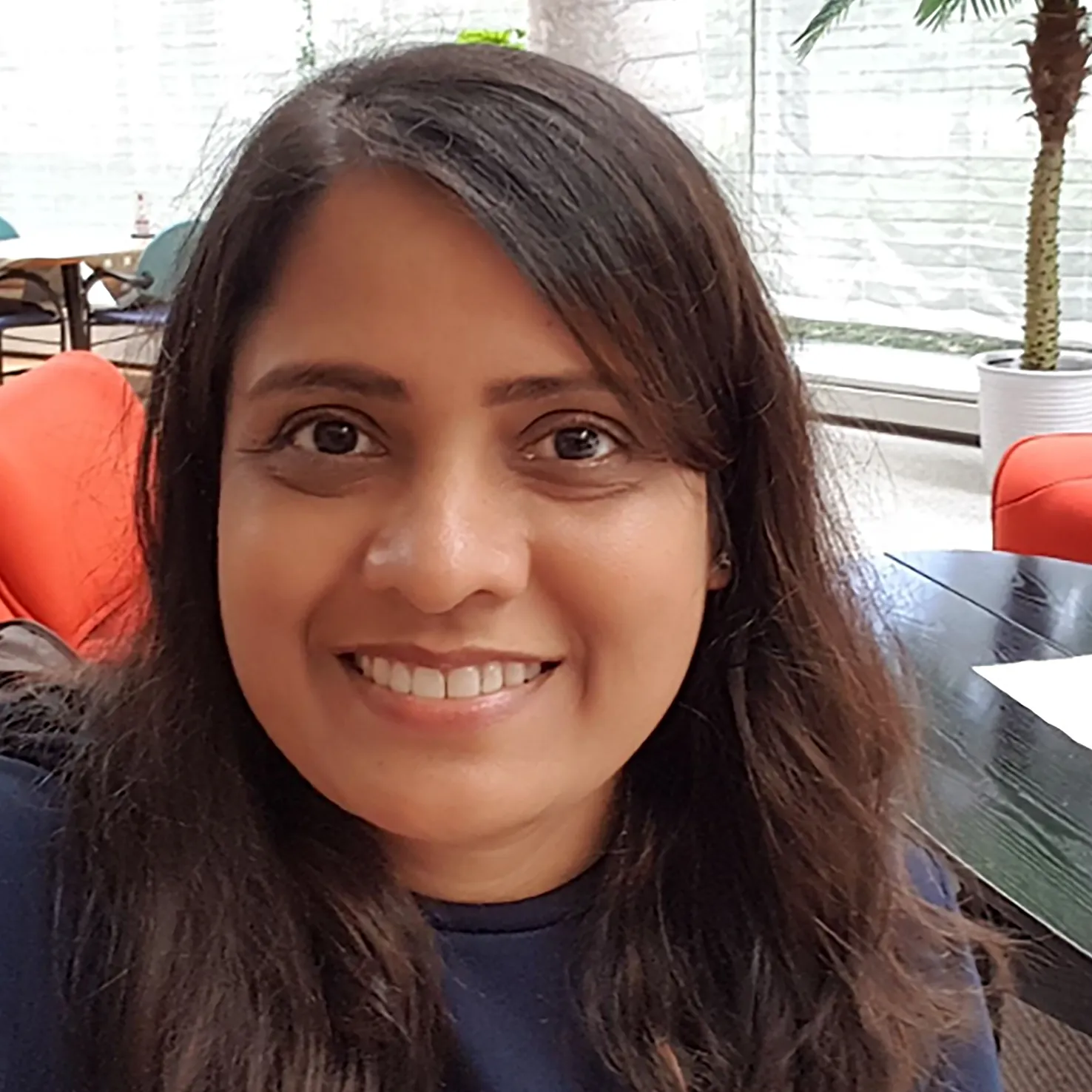Int'lFlex-Kurs "Communities in (a) crisis" mit Gastwissenschaftlerin Ranganayaki Thangavelu
Die Gastwissenschaftlerin Ranganayaki Thangavelu berichtet über ihren Aufenthalt in Potsdam und ihre Erkenntnisse aus dem Int'lFlex-Kurs, initiiert vom Fachbereich Sozial- und Bildungswissenschaften.
Video-Interview mit Ranganayaki Thangavelu
Im Interview erzählt Ranganayaki Thangavelu von sich und ihrem beruflichen Werdegang. Sie schildert den Prozess und die Eindrücke des Ankommens in Potsdam. Welche Unterschiede zu ihrer Heimatinstitution konnte sie feststellen? Wie empfand sie die Lehre und Zusammenarbeit an der Fachhochschule Potsdam? Was waren Lerneffekte und Reaktionen der Studierenden auf die internationalen Einblicke, die der Kurs bot? Der Int'lFlex-Kurs wurde durch das Drittmittelprojekt "FL2@Int'lFlex – Forschungsbasiertes Lehren und Lernen im internationalen Kontext Projekt" gefördert, um die Internationalisierung der Fachhochschule Potsdam durch Kooperationen mit internationalen Partner*innen zu unterstützen.
Resümee von Ranganayaki Thangavelu
We started by getting to know each other, not only me as a lecturer, but also the students themselves got to understand each others lives. It gave me a lot of awareness about what living and studying in Germany as a young person is like. What was really nice is that my class was the first one they were coming back to campus for after 1.5 years, so they were quite excited. I learned a lot from them about German life in the first couple of weeks.
At a personal level, the fact that I got to be here for several moths and create content for this course was already in itself a benefit. A new ability that I have developed is bringing in my knowledge as a practitioner and communicating it. That is one big take away. It is very possible to create a new learning within the span of 13 weeks.
Another take away is how we can collaborate across the world. We come from two different continents, but the practice of social work, the practice of community, appreciation and development is no different because we are all human beings.
The third would be the cultural differences. We see the world with different eyes. As an Asian, I see the world with different eyes, and I am learning the European view of the world and life, and the political differences that we have. Bringing all of that together in the learning is amazing to me. Learning community or social work cannot happen in a vacuum. It happens in your everyday life. That is what I intended to do. So one of the take aways is: How can we expand the rule of community from an individual relating to our immediate network of family and friends to society as a whole, and understand how local community action ads up to a bigger whole?
I really hope to come back, but we will have to wait and see if there is an invitation to come back. I will be supervising some students on projects starting from April. I will also perhaps be developing a course on community to strengthen the current course. Currently I am doing some training on e-pedagogy, which will allow me to look into the assessments as well as the outcomes of this course in greater depth. This way I can make it tighter and be very clear about it being more of a student-centered learning. In terms of research, I haven’t really thought about it that much. I would probably have to have some discussions with other faculty members. The other thing that came up was that several faculty member were really keen on the work that I am doing, and I was very keen on their work as well. So we had a couple of informal discussions to share our own experiences. What is amazing is that all of us come with the right space and the right intention so that the students can gain the most. Those were very enriching.
A message to my students:
Keep on being curious and observant. It's in observing people and being curious that we can actually learn and contribute. They have been a great bunch and they brought in a lot of learning. I think that learning will continue to grow as they develop into social workers, develop into helping professionals in society. So curiosity would be my key word for everyone.
